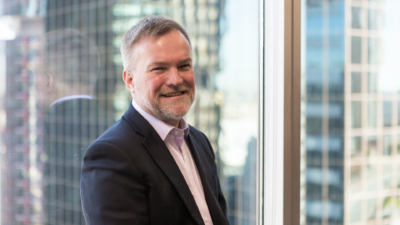Future Generation pivots to prevention
The two Future Generation LICs, focusing on domestic equities (Future Generation Australia) and global equities (Future Generation Global) – were set up in 2014 and give one per cent of their more than $1 billion in assets to mental health charities a year. Over their lifetime they’ve generated around $53 million for charities focused on supporting at risk youth and youth mental health respectively.
Future Generation’s new CEO, Caroline Gurney, is six months in the role after leaving an 18-year stint as head of corporate affairs at UBS. She says that new “impact partners” are now being sought for Future Generation Global.
“We’ve always invested in mental health charities for Future Generation Global, and that’s been mainly around intervention – funding Black Dog, the Kids Help Line, the University of Sydney Brain and Mind Centre,” Gurney said.
“Now we’re moving to prevention, because we really believe that it doesn’t have that much government funding – one per cent of government funding goes to funding of mental health for young Australians – and if we can prevent future mental health issues, it’s going to take the burden and the strain from a number of people that need to be looked after and treated and cared for.”
Future Generation released expressions of interest for the new push in February. It received 170 applications back – “all amazing” – and will announce in July the next 10-15 charities that the foundation will be working for over the next three to five years. Future Generation has been “pretty consistent” in its work, with little change in the line-up of charities over the six years it’s been running.
“We really believe that you have to invest in your partners and give them funding for a number of a years because that allows them to do what they’re really good at: helping the people who need to be helped,” Gurney said. “You can imagine what it’s like fundraising all the time. The fact that we can take some of the stress out of that and help them with their core mission is a wonderful thing.”
The LICs are essentially funds of funds, investing in the offerings of a bevy of domestic and international managers, including Regal, Paradice, and Magellan. The managers work pro bono, and have foregone total fees of around $97.5 million since inception.
All of the charities supported are Australian, though Gurney says that Future Generation might support offshore charities in the future. She was previously a non-executive director of Future Generation, and spearheaded a number of charitable efforts in her time at UBS, including helping set up the UBS Australia Foundation as well as investing in Story Factory.
While its shareholder base is mostly in the 55+ plus range, Gurney hopes that Future Generation’s charitable tilt will make it more attractive for a younger generation of investors, who want to see their money put to work for social causes as well as earning returns.
“The next generation asks environmental questions all the time,” Gurney said. “They wouldn’t even think about not putting their rubbish in the right bin; they all want to buy the next electric car; they all want to do the right thing. And they talk about mental health continually, because it’s now something in schools, universities, and the workplace… I think what we’re investing in is their real belief.”











